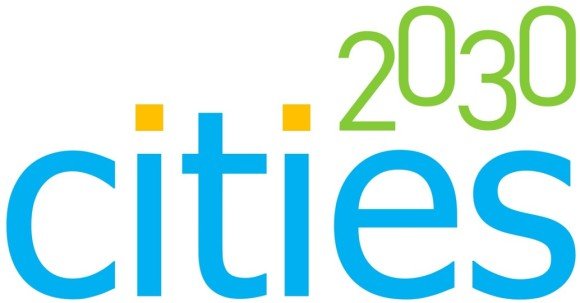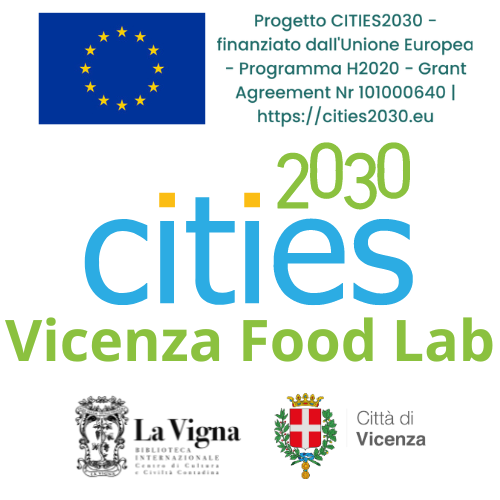- (1) Welcome to Vicenza!
- (2) The Municipality of Vicenza
- (3) The International Library "La Vigna"
- (4) Policy Lab: general overview
- (5) Policy Lab: thematic priorities
- (6) Policy lab: Action Plan
- (7) PassaVIvande: participatory process in developing the local Food Policy
- (8)Living Lab: CRFS Overview
- (9) Living Lab: Innovation Action Plan
- (10) Stories from the lab: LL#2 - FOOD ACTION: Sustainable Ethnic Dinners
- Access history
- Members
- (11) Stories from the lab: main events (under construction)

(8)Living Lab: CRFS Overview
Both Policy Lab and Living Labs are established to improve, to innovate CRFS with regards particularly to  the following topics:
the following topics:
- Food Governance
- Food for all, ensuring social and economy equity
- Sustainable Diets and Nutrition awareness
- Food System Knowledge and training
- Urban agriculture
Vicenza is partner of Cities 2030 project, and aims at establishing a new FOOD POLICY OFFICE and signing the Milano Food Policy Pact. The final scope is to improve the sustainability of the CRFS.
Specific objectives are: to promote health nutrition and habits, to stimulate the reduction of food waste, to ensure food for all, to experiment new urban agricultural actions, to engage stakeholders to contribute to the CFRS knowledge system and open innovation process.
Co-creation
In the framework of Cities2030, a policy Lab inside Vicenza municipality it will be activated (FOOD POLICY OFFICE integrating different Units), while the living lab @ La Vigna Library is meant to better engage businesses, citizens, research institutions and the municipality itself in co-designing new sustainable food system initiatives
The aim of the policy lab is to improve CRFS sustainability and related urban policies.
The aim of the living lab is to exploit the network and develop an “Ortobook” where knowledge brings innovation and to establish an international foundation to improve agri-food knowledge system.

Initial ideas and focus
The main topics in Vicenza Labs are aligned with the Milan Food Pact and tailored for our urban reality and potential:
- Governance: through the exchange of information, the involvement of all the actors of the local food system until to the establishment of the Food Policy Office at the Municipality
- Sustainable diets: with activities such as the development of guidelines on healthy nutrition, promoting sustainable choices when shopping for food.
- Social and economic justice: which includes support for the most vulnerable through the creation/ improvement of community canteens, kitchens and food emporium for all, the promotion of social inclusion activities such as shared vegetable gardens and specific initiatives to give a chance to people living at the borders of society
- Food production: with interventions to support urban and peri-urban production, the recovery of traditional food, the conservation of food knowledge ...
- Food distribution: through the planning of better logistics systems with low environmental impact, supporting farmers markets in the cities and improve the fleet of electric vehicles available to distribute food from the municipal fruit and vegetable market to the cities neighbourhoods.
- Food waste: with the adoption of policies that favours the reduction of surpluses and losses along the entire food chain and increase awareness of the need to reduce waste, the promotion and support of new circular and social entrepreneurships for a better food consumption.
> The intent of the Lab is to give life to a network of stakeholders committed to implementing sustainable food policies and practices, also through the exchange of ideas and suggestions on how to concretely address current challenges of global sustainability.

